Tea is the affair of spring, and spring resides within the tea.
During late spring, the second flush of Spring Tea sprouts anew. The reporter ventures into the tea region of Tianba · Sanhe Society in Yiwu Village, Mengla County, to experience the natural scenery, savor the pleasant fragrance of spring tea, and visit the tea farmers and their affairs.
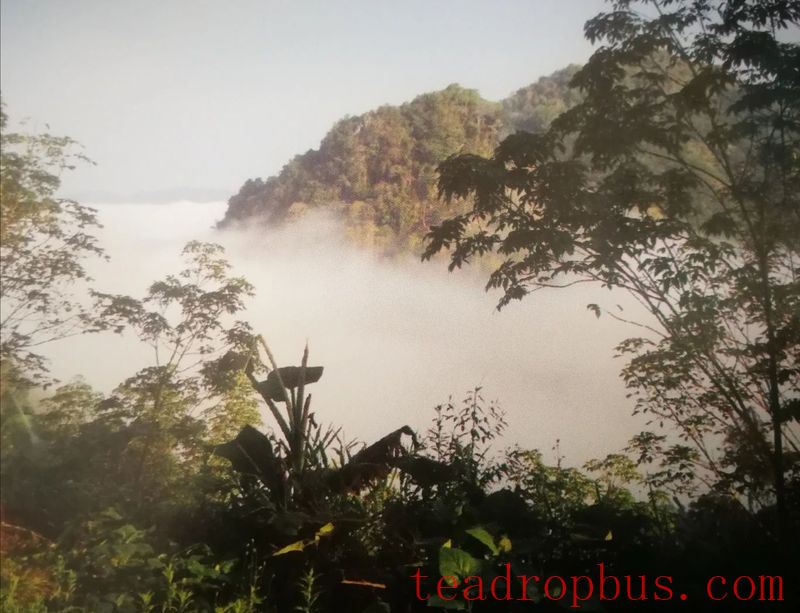
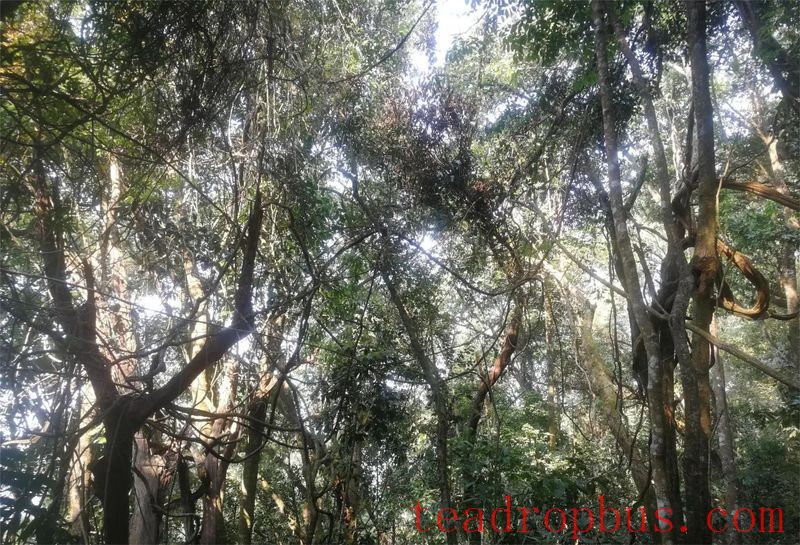
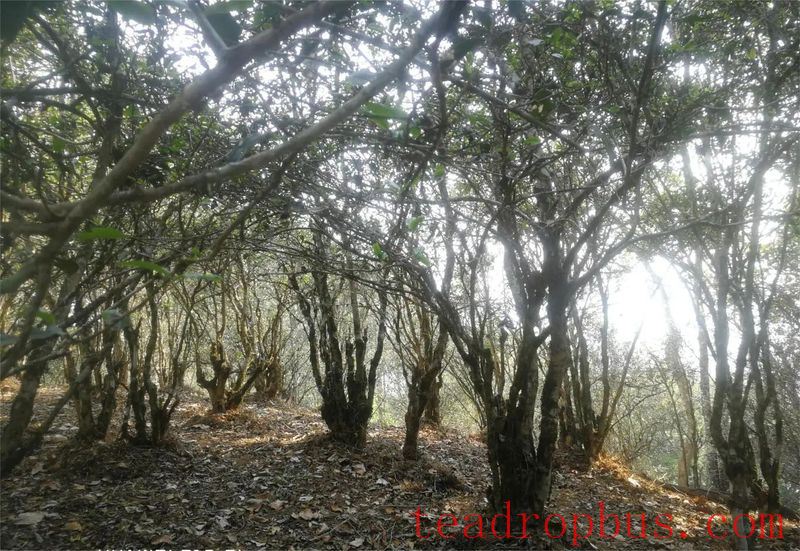
Tea Forests in the Depths of the Dense Woods
Ascending along the path of Ma Huang Qing, the dense forest blocks out the sky and trees intertwine, while birdsong fills the air. Looking afar, the misty mountains, sometimes visible and sometimes hidden, are the famous tea regions of Luoshuidong and Guafengzhai.
Huang Family Liquor House, Old Pu Village, Old He Village… these old place names with a touch of human warmth have been completely covered by lush forests. In the verdant hills, under the towering banyan and camphor trees, the ancient tea forests of the Sanhe Society villagers' group are revealed, scattered here and there. After several spring rains, the ancient tea trees have sprung back to life, sprouting new buds once again.
Climbing over the peak known as “Chaqituanbao,” one enters the hills of the Tianba villagers' group, where towering ancient trees stand and vines entangle. Walking on the moist forest path, the mountain breeze brings a refreshing coolness. As the elevation gradually decreases, the tea trees hidden deep within the forest come into view. Zhou Yan, the Party branch secretary and village committee director of Yiwu Village, recalling happy childhood times: “When I was young, my parents would often bring us into the forest when they went up the mountain to work. While the adults worked, we children would swing from the vines hanging down from the treetops, filling the quiet forest with our laughter.”
This lush and verdant forest has a good ecological environment, with tea growing among the trees, coexisting in harmony. Almost all the ancient and arboreal tea trees of Tianba and Sanhe Society villagers' groups are concentrated in such forests. Dappled sunlight filters through the tall trees into the tea forest, occasionally enveloped by mist, various plant fragrances blend together, permeating the tea leaves, creating the “mountain wilderness aroma” favored and esteemed by tea merchants and aficionados, making it a rising star among the niche tea regions of Yiwu!
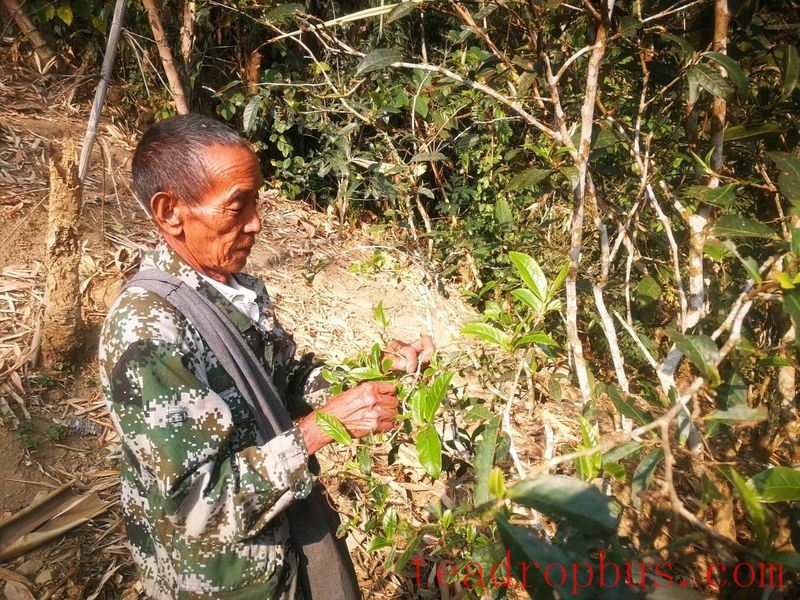
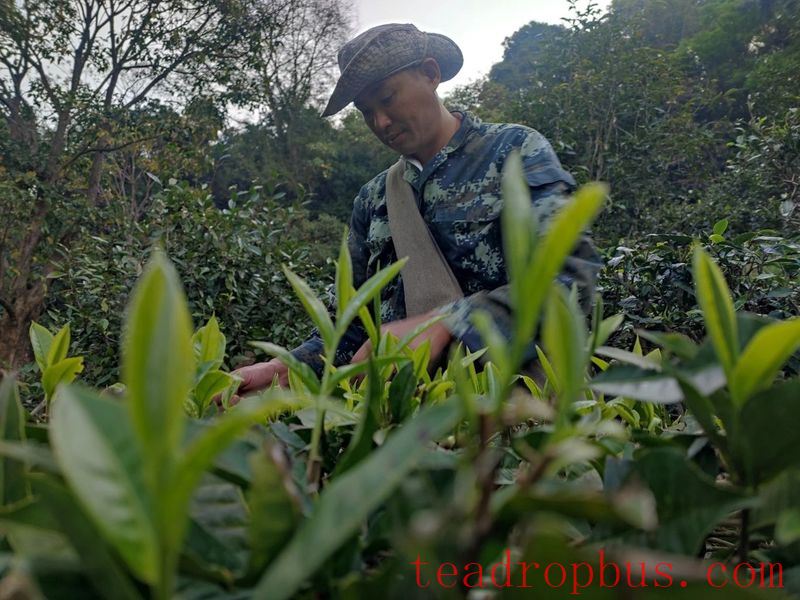
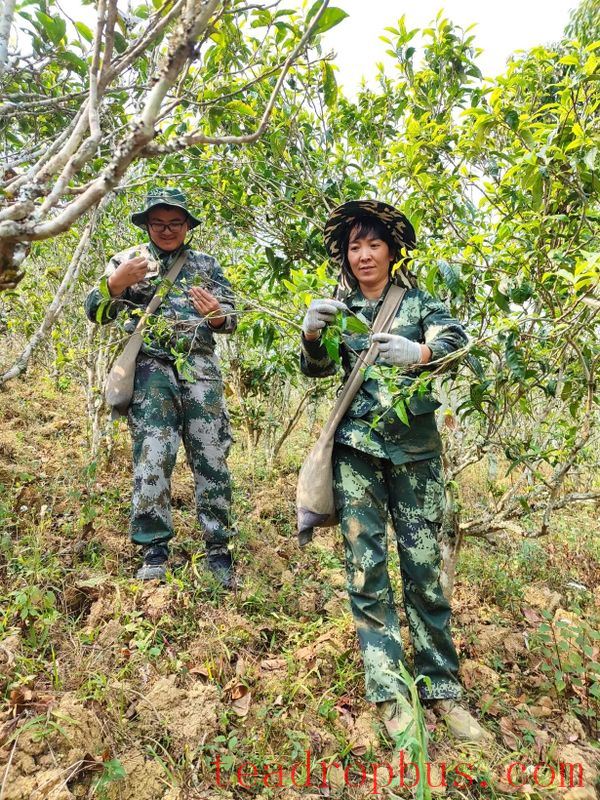
Busy Spring Tea Affairs in the Villages
The tea farmers wear smiles of joy, busy amidst the lush spring scenery.
In the tea forests of the Tianba · Sanhe Society tea region, the figures of tea farmers and workers can be seen everywhere, busily picking fresh leaves. They move nimbly, taking care not to damage the branches and leaves of the tea plants. Some ancient tea trees reach several meters in height, so they set up ladders and climb carefully to pick the leaves. Chen Yunhua, a tea farmer from the Sanhe Society villagers' group, who is coordinating and guiding the tea workers, casually picks a fresh leaf and puts it in his mouth, “Bitter at first, then sweet and refreshing, this is our thirst-quenching ‘magical tool.'” He laughs, adding that another flush of spring tea has sprouted, and he has hired four or five tea workers to seize the opportunity for picking.
Entering a spacious and tidy farmhouse courtyard, two elderly people are sitting around a tray, carefully selecting yellow leaves from the tea. Two young people are busy stir-frying the tea. “Please taste our spring tea this year!” Pu Ya, a post-80s tea farmer of Tianba villagers' group, warmly invites, as boiling water blends with the spring tea, spreading a clear fragrance. Sipping the tea, its aroma is high and uplifting, instantly refreshing the palate. “Our family has leased out dozens of mu of arboreal tea land, focusing mainly on managing, producing, and operating more than 20 mu of ancient tea trees well. We strictly control quality at every step of tea picking and processing, continuously improving the quality of the tea, earning recognition and affection from tea merchants and aficionados,” Pu Ya introduces with satisfaction.
The Tianba · Sanhe Society tea region has over 700 mu of ancient tea trees and more than 4,000 mu of arboreal tea trees, producing over 50 tons of tea each year, with an average per capita net income of over 20,000 yuan for farmers. In recent years, ecological awareness has deeply embedded itself in the hearts of the villagers. “Strictly prohibit the use of pesticides and fertilizers in tea fields.” “Eliminate destructive picking, and stop tea picking during the rainy season.” “Protect the good growth environment of ancient tea trees and maintain the ecological balance of the ancient tea gardens.” … A series of powerful measures have been written into the village rules and regulations, becoming a self-conscious practice for the villagers.
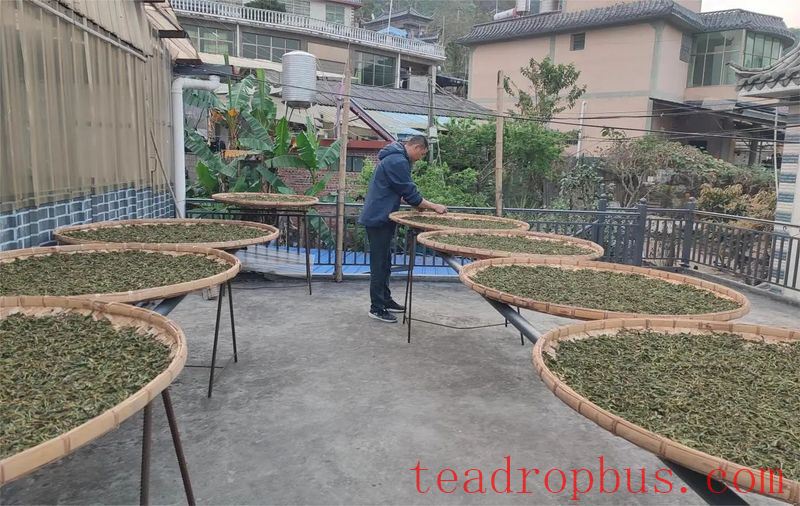
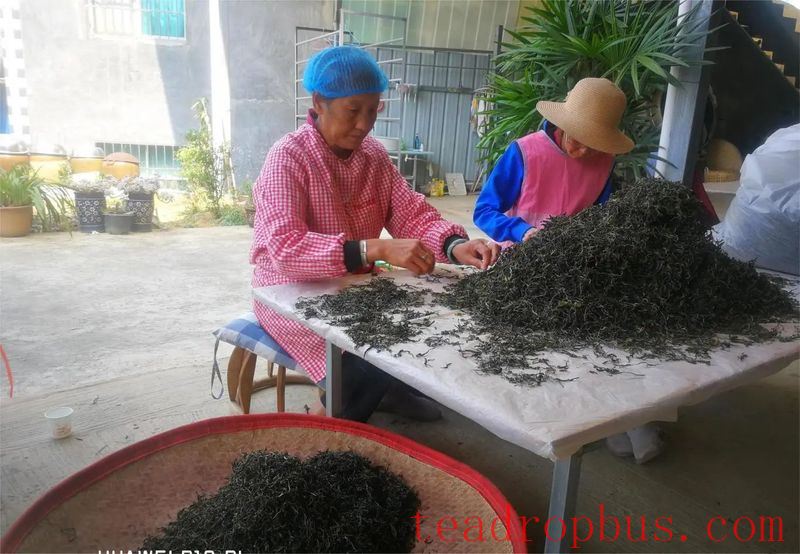
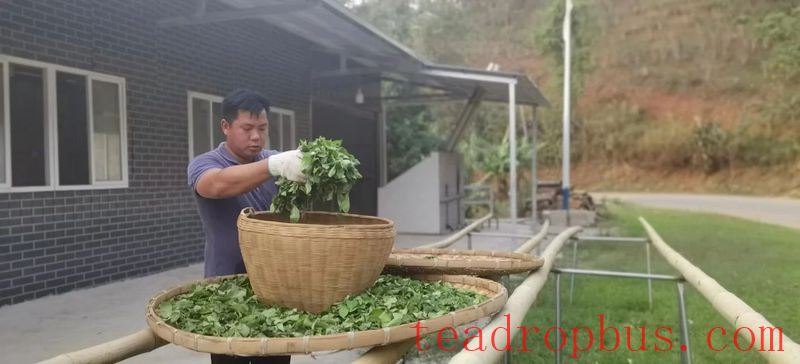
To Ensure the Tea's Fragrance Lasts Longer
How to build a tea brand, enhance its reputation, and gain wider market recognition? How to rely on a good ecological environment and ancient tea tree resources to embark on a new path of integrated tea and tourism development?
These resonant questions of the times linger in the minds of many tea farmers, tea merchants, and Yiwu village cadres.
The volume of tea in the Tianba · Sanhe Society tea region is not large, but it has attracted several tea enterprises from other places, including some well-known companies with annual sales exceeding tens of millions. Ma Xianning, the chairman of Mengla Ma's Elder Sister Tea Industry Co., Ltd., who has been stationed in the Tianba villagers' group for 19 years and has five direct stores and 57 tea specialty stores nationwide, believes that the Tianba · Sanhe Society tea region has a good ecology and decent tea quality, plus its proximity to Yiwu Town, which is known as “China's First Town of Tribute Tea,” giving it significant comprehensive advantages. Ma Xianning suggests that currently, the Tianba · Sanhe Society tea region should create a tea brand with distinct geographical markers and rich cultural connotations, and operate and promote it persistently to gain broader market recognition. This way, there is still considerable room for improvement in the tea industry.
In the Tianba · Sanhe Society tea region, there are more than 30 local tea merchants and tea enterprises that have grown out of the native tea farmers, each with their own tea factory and business name, and some even have tea sales stores outside the province and in Kunming. Yu Dahai, who has run the Yu's Sanhe Tea Factory for 20 years, and Li Junfeng, who founded the Junfeng Brand tea plantation base over ten years ago, are representatives of this group. They tell reporters that sufficient tea aroma, sweetness with a lingering aftertaste, and high cost-effectiveness are consistent evaluations of the tea from the Tianba · Sanhe Society tea region by